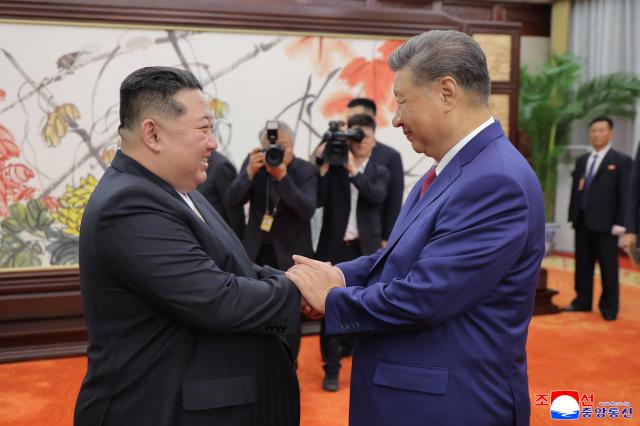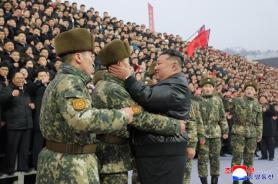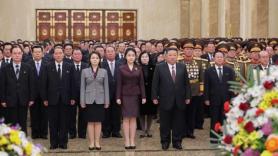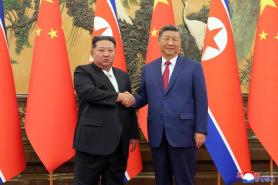
SEOUL, September 23 (AJP) - North Korean leader Kim Jong-un has reaffirmed his country’s commitment to strengthening ties with China, sending a reply letter to Chinese President Xi Jinping that was published on the front page of Rodong Sinmun on Tuesday. The letter was written in response to Xi’s earlier congratulatory message marking the 77th anniversary of North Korea’s founding.
In the official English version of the message, provided by the Korean Central News Agency (KCNA), Kim wrote: "I express thanks to comrade general secretary for sending warm congratulations and sincere wishes on the occasion of the 77th founding anniversary of the DPRK."
He recalled his recent visit to Beijing for the 80th anniversary of the end of the war against Japan and World War II, saying: "I could feel well enough the invariable support and special friendly feelings of the Chinese Party, government and people towards our Party, government and people."
Kim pledged that "it is the steadfast stand of the Workers' Party of Korea and the government of the Democratic People's Republic of Korea to further strengthen and develop the traditional relations of friendship and cooperation between the DPRK and China as required by the times."
He added that both countries would "more vigorously promote the development of the DPRK-China friendly relations in the common struggle for accomplishing the socialist cause and thus provide the peoples of the two countries with greater welfare."
Rodong Sinmun's coverage carries particular weight. While the KCNA is the regime’s outlet for international audiences, Rodong is the official newspaper of the ruling Workers’ Party and is directed at the domestic readership. By placing Kim’s letter prominently on its front page, the leadership signaled to the North Korean public that the alliance with China is strong and remains a source of legitimacy and pride.
The relationship between China and North Korea has long swung between cooperation and tension. Beijing backed international sanctions in response to Pyongyang’s nuclear weapons tests, which created friction in the mid-2010s. But starting in 2018, the relationship warmed again as Kim and Xi met several times ahead of Kim’s high-profile summits with then U.S. President Donald Trump. The pandemic later stalled such exchanges, with North Korea sealing its borders for several years, but renewed contacts since 2024 have steadily restored ties.
Kim's Beijing trip earlier this month was his first overseas journey since the COVID-19 lockdowns. His summit with Xi was the first in nearly seven years, and both sides declared their ties "unshakable."
China's Ministry of Foreign Affairs, in its official readout of the meeting on September 5, avoided mentioning denuclearization of the Korean Peninsula, a notable departure from Beijing’s past position. The omission pointed to a recalibration in how China now presents its relationship with Pyongyang.
The timing of this renewed closeness comes as regional dynamics grow more complicated. Since taking office for his second term in January 2025, U.S. President Donald Trump has taken a tougher stance toward both North Korea and China.
The U.S. State Department, in a September 4 press briefing, criticized Kim's participation in the Beijing parade, describing it as a move that "emboldens authoritarian alliances." South Korea has taken a more restrained line, emphasizing the importance of dialogue and peace on the Korean Peninsula while monitoring the closer ties between its northern neighbor and Beijing.
The renewed emphasis on ties with Beijing comes just two days after Kim’s address at the Supreme People’s Assembly in Pyongyang on Sunday. In that speech, he signaled openness to talks with Washington if the United States dropped its denuclearization demand, while firmly rejecting any dialogue or unification with South Korea, which he dismissed as a "U.S.-dependent colony."
Copyright ⓒ Aju Press All rights reserved.




